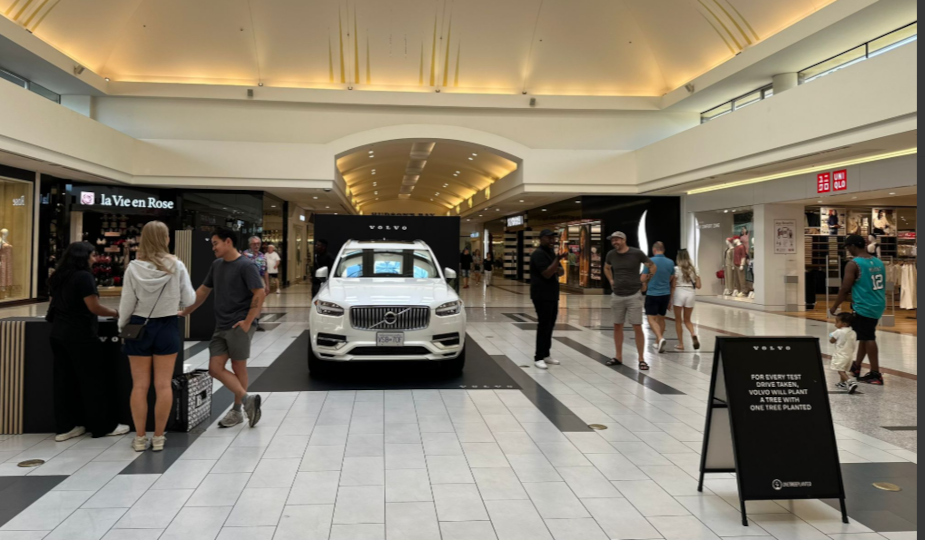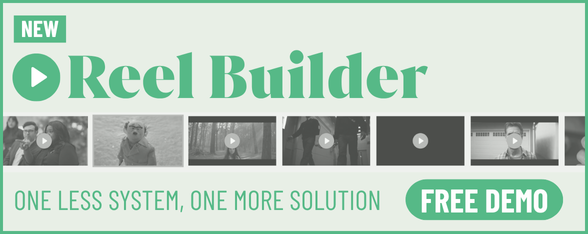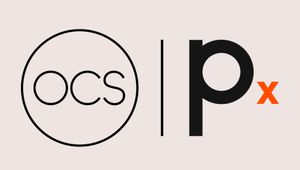
Meet the Canadian Agency Looking to Normalise Sustainable Behaviour and Business Practice

It feels as though of late, despite the subject’s pressing nature, not many people are talking about sustainability and environmentally-friendly practices. Perhaps it’s a reflection of the state of the world – we are in a time where news feeds seem predominantly to display updates on all the political insanity happening around the globe – but with the doomsday clock a mere 89 seconds away from midnight, it just doesn’t feel quite right.
Of course, broad, sweeping statements always leave exceptions to the rule, and one such example of a business trying to make some noise in this regard is experiential marketing agency Proof Experiences. A carbon neutral organisation, sustainability has been at the top of its mandate for the past 15 years, guiding every facet of its work, partnerships, and how it shows up in the world. From using carbon tracking software to measure, benchmark and reduce emissions, to running business events encouraging others within the industry to prioritise eco-conscious behaviour and practices, there’s been a lot going on over the years which hasn’t necessarily been given its due time in the sun yet, from which much can be learned.
So, for Earth Month, a moment when this conversation is not only topical, but needs to be amplified and emphasised to cut through the noise, LBB’s Jordan Won Neufeldt chatted with Proof Experiences’ executive vice president, client experience and sustainability, Kelly Power, to learn more about how the agency approaches its fight for a greener tomorrow.
LBB> From the top, let’s talk about Proof Experiences’ relationship with sustainability. How long has this been something the agency has been thinking about, and why is it so important to your ethos?
Kelly> Sustainability has been part of our DNA for nearly 15 years. Most notably, we've been a carbon neutral organisation for that entire time – tracking, measuring, and offsetting our emissions. We also offset all client event-related travel, at no cost to our clients.
Beyond carbon, we’ve always believed in giving back to the communities where we live and work. Each year this takes on different forms, whether it's volunteering, donating, community cleanups, or clothing drives. Most recently, we launched a dedicated ‘Giving Week’, where employees could choose from a range of community initiatives to get involved with.
Sustainability for us isn’t a checkbox; it’s a core value that shapes how we operate, partner, and show up in the world.
LBB> Of late, with government focus on climate action seemingly diminishing, what are the implications both for Proof Experiences, and the experiential sector as a whole?
Kelly> Sustainability has never been more critical, especially as government attention to climate action and DEI seems to be waning. In this environment, it’s up to businesses to lead the charge. We have the platform, influence, and opportunity to drive real, meaningful change.
When it comes to events specifically, the stakes are high. The events industry accounts for nearly 10% of global carbon emissions – a staggering figure. But it’s also an opportunity. Events are about people, and people drive progress. One well-designed event can educate and inspire hundreds or even thousands, creating a ripple effect that extends far beyond the venue. When people gather, great things happen. And, when we do it sustainably, the impact multiplies.
At Proof Experiences, we’re taking a multi-pronged approach to adjust, but the most critical shift is in how we support and guide our clients. As trusted advisors in event strategy and design, we’re bringing sustainability into the conversation early and often. That includes getting buy-in from senior leaders to make sustainability a core success metric, because what gets measured gets managed. And once it's a priority, the rest starts to fall into place.
Lastly, we rely on data to drive decision making with clients. Customers are more motivated than ever to choose sustainable products and services. IMI Pulse data shows the strength of environmental consciousness in purchasing habits: among North American consumers aged 13-64, “Purchasing because the products are environmentally friendly” has grown from 44% in 2019 to 57% in 2024. (This is a majority of consumers, not a niche!).

LBB> With that in mind, can you tell us more about your sustainability goals for 2025 and beyond? Where are you hoping to take things?
Kelly> We have both climate and social sustainability goals.
On the climate side, we’ll continue to operate as a carbon neutral organisation, and use our audits to identify ways to reduce emissions. This year, we’re rolling out event emissions measurement software to better understand impact, guide reduction strategies, and support offsetting. Our goal is to have 100% of our clients adopt this tool – an ambitious but achievable target given the volume of events we produce.
On the social side, we’ll continue giving back through donations, volunteering, and community initiatives. We’re also formalising a procurement policy that prioritises vendors who are sustainable and equity-focused.
Internally, our people and culture team remains focused on building a diverse, inclusive, and equitable workplace.
All in all, we aim to lead in sustainable experiential marketing by upskilling clients, shaping industry standards, and assessing and pursuing B Corp certification to broaden our impact for people, planet, and community.
LBB> Tell us more about this new software! How does using it give way to effective strategy, and what are some of the most valuable lessons you’ve learned since implementing this approach?
Kelly> We love our carbon tracking software! One of the biggest lessons we’ve learned is that it’s most powerful when used during the planning phase, and not just after the event. While it's easy to calculate emissions post-event and offset them, the real value comes from using the data early to inform better decisions around travel, venue selection, food and beverage, production, and more.
Another key takeaway? Involve vendors from the start. Their input improves measurement accuracy, and the act of discussion often inspires them to adopt more sustainable practices, creating a ripple effect for future events.
LBB> That last point is very interesting! How does Proof Experiences go about partnering with vendors and suppliers while encouraging sustainability, and what advice can you offer others looking to do the same?
Kelly> Start by expanding the conversation beyond services, capabilities, and pricing; sustainability needs to be part of the vendor selection criteria. Ask questions like, ‘what sustainability initiatives do you currently have in place?’, and ‘what are you working toward?’.
For production partners, ask about the end-of-life plan for physical assets. For venues, enquire about sustainable certifications and energy sources. With food and beverage, ask about the use of locally-sourced or seasonal ingredients. And across all vendors, request a commitment to measurement (because again, what gets measured gets managed).
LBB> Earlier, you mentioned the events industry accounts for 10% of global carbon emissions. Beyond the software, how do you approach responsible event design from project to project?
Kelly> Similar to the software, planning must start at the beginning, and not be treated as an afterthought. To facilitate this, we’ve developed a sustainable event planning canvas to guide teams through the process right from the discovery phase. It helps users identify blind spots, prioritise high-impact areas, and build a strategy and execution plan that’s tailored to the unique needs of each event and each stakeholder. Not all projects are created equal, and this tool ensures sustainability is integrated in a meaningful and practical way.

LBB> With all this in mind,what are some of the best examples of projects where you took a sustainability-first approach to great effect?
Kelly> We do sustainability work with many great clients including Dell, Intuit, Government of Canada, and Moneris, to name a few. However, one standout example is Volvo’s ‘National Test Drive Tour’, where we travelled across Canada to promote its electric and hybrid vehicle lineup.
As a sustainability leader in the auto industry, Volvo’s values were woven into every detail of the experience, from optimised travel schedules and solar-powered elements to eco-conscious production materials. Sustainability was also integrated into the customer journey: for every test drive completed, a tree was planted in partnership with One Tree Planted, and the event experience included storytelling moments to educate and inspire attendees to make more climate-friendly choices.


It’s also important to note that sustainability isn’t just about climate – it includes social sustainability too. For our client, Intuit, whose mission is ‘Powering Prosperity’, we focus on showcasing its commitment to diversity and inclusion. A great example is its sponsorship of BFUTR, the world’s largest gathering of Black tech professionals. We worked with local Black artist and QuickBooks customer Benny Bing to design its booth and curate content for sponsored breakout sessions, ensuring Intuit showed up authentically with the Black Professionals In Tech Network audience.

LBB> Looking to the future, it’s been revealed that Proof Experiences is developing an industry conference for later in the year, aimed to promote sustainability in events. How are things going on that front? What can people expect from the event?
Kelly> Upskilling the industry is a growing priority for us at Proof Experiences. One of the big ways we’re tackling that is by launching a sustainability-focused industry conference in late 2025 (or early 2026). Our goal is to bring together event planners, agencies, clients, and vendors to learn, share, connect, and be inspired to drive real change in the way we plan and execute events. We’re still in the early stages and can’t share details just yet, but stay tuned on our socials for updates as they roll out!
In the meantime, we’re continuing to support the industry through free webinars and in-person workshops designed to help teams build sustainability into their day-to-day work.

LBB> Finally, seeing as it’s Earth Month, is there any advice you’d like to offer the industry about how sustainability can be better approached as a whole? What are you hoping to see?
Kelly> Make sustainability a measurable objective. Build it into your briefs – for clients, vendors, and internal teams. Find your passionate sustainability champions and lean on them. If you don’t have them in-house, bring in a consultant.
Most importantly, start small, but meaningful. Don’t get overwhelmed by everything you could do – identify one impactful action, and commit to it with time, budget, and people. Then, build from there.
We need to normalise sustainable behaviour just like we normalise business growth, profitability, client service, creativity and innovation. So, I hope to see more companies getting curious, starting conversations, and committing to progress, even if it's not perfect. Testing, learning, and talking about sustainability is how we move the industry forward.












